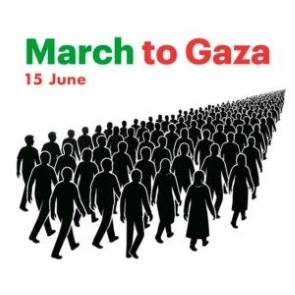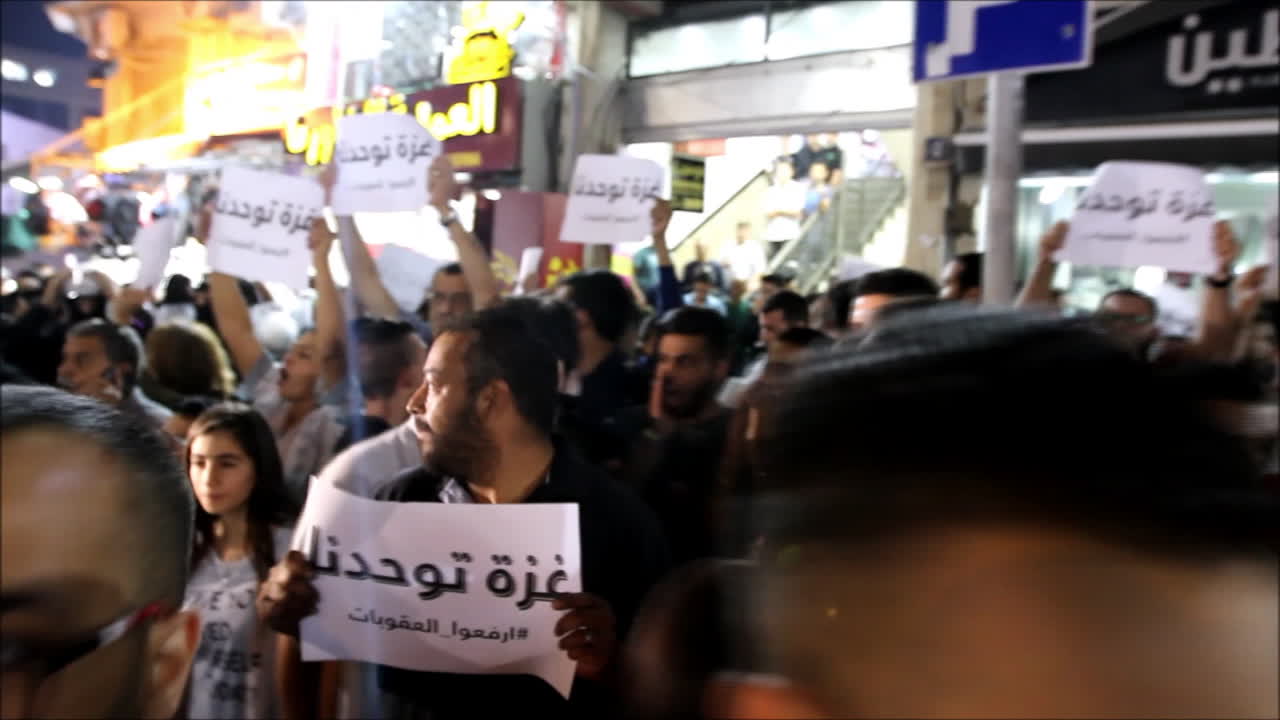
Global March to Gaza
Global March To Gaza (GMTG) is a peaceful civil, apolitical, and independent international movement based on the principles of justice, human dignity, and peace. The movement calls to end the illegal Israeli siege of Gaza, establish an immediate ceasefire, ensure the protection of healthcare facilities, guarantee unimpeded access to humanitarian aid, and achieve a long-term peace rooted in justice.
The GMTG was initiated by numerous human rights defenders and activists who are affiliated with a global movement of grass roots organisations, trade unions, and social movements, including the Palestinian Youth Movement, Codepink Women for Peace in the United States, and Jewish Voice for Labour in the United Kingdom. GMTG emerged in the wake of various initiatives such as the Freedom Flotilla Coalition and the Global Convoy for Gaza, which mobilised in 2024 to lift the blockade of Gaza and allow humanitarian aid to enter. The international coordination of the movement is counting on the presence of prominent human rights defenders and activists, many of them have been also involved in the Freedom Flotilla Coalition and other organisations defending justice and freedom, such as Dr Hicham El Ghaoui, Zwelivelile Mandla Mandela, Dr Catherine Le Scolan-Quéré, and Manuel Tapial.
The breakdown of the ceasefire at the end of 2024 prompted these movements to reorganise. In May 2025, three appeals were launched by peaceful movements with the aim of providing aid to the people of Gaza: the Freedom Flotilla by sea, the GMGT by air, and the Soumoud Convoy by land through a march to the Rafah border crossing.
The organisers of GMTG have emphasise that their goal is not to "forcibly enter Gaza", but to establish a humanitarian corridor that will let the Gazan people access food, water, and medical aid.
The global movement advocating for humanitarian access to Gaza through the Rafah Crossing underscores the urgency of collective action in response to the ongoing genocide in Gaza, highlighting the power of peaceful, organised mobilisation.
In May 2025, the movement announced a major milestone in its campaign to defend the rights of the Palestinian people in Gaza: a rally was planned for mid-June 2025, with a large-scale convergence of human rights defenders, activists, and citizens in Cairo on June 12, followed by a peaceful march toward Rafah on June 15, with efforts to negotiate the opening of the Rafah Crossing with the Egyptian authorities. This call to action garnered participation from over 4,000 individuals, activists, and human rights defenders from over 50 countries.

